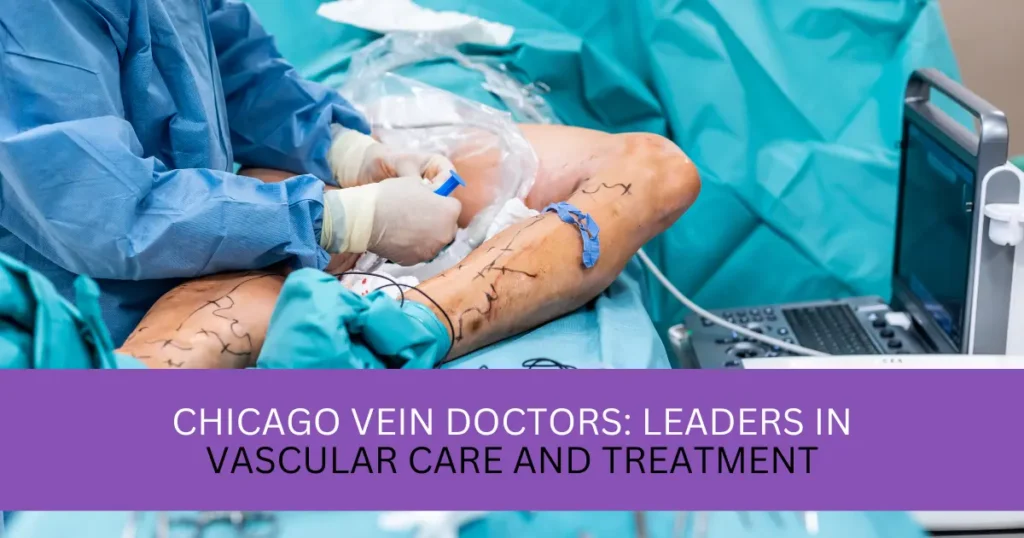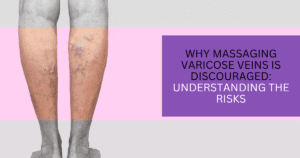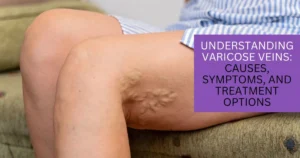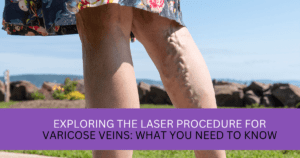What is the Vascular System?
The vascular system, also called the circulatory system, is like the body’s highway network. It’s made up of vessels that transport blood and lymph throughout the body. This system plays a crucial role in moving oxygen, nutrients, hormones, carbon dioxide, and blood cells to where they’re needed, ensuring our body runs smoothly.
A healthy vascular system is essential. Without it, our bodies wouldn’t be able to fight off diseases, eliminate waste and toxins, or keep all our organs functioning properly.
Keeping your vascular health in check is vital for maintaining overall well-being. Protecting this system is key to a healthy body!
Chicago Vein Centers offers pain-free, non-surgical treatments. Our team uses cutting-edge, minimally invasive techniques to ensure top-notch yet affordable vein care.
In this blog, we’ll see how Chicago vein doctors can help you tackle your vein problems. But first, let’s break down these conditions and what causes them.
Causes of Varicose Veins
Varicose veins happen when veins don’t work as they should. Normally, veins have one-way valves to keep blood flowing toward your heart. When these valves fail, blood pools in the veins instead of moving forward. This causes the veins to enlarge, often affecting the legs since they’re farthest from the heart, and gravity makes upward blood flow more challenging.
Here are some common causes of varicose veins:
- Pregnancy
- Being over 50
- Standing for long periods
- Obesity
- Family history of varicose veins
- Chronic blood clots.
Symptoms of Varicose Veins
Varicose veins are visible, twisted veins, usually on your legs. You might also feel pain, swelling, heaviness, and achiness around the enlarged veins.
In some cases, you may also experience discoloration. In more severe cases, the veins might bleed significantly, and ulcers can form.
Diagnosing Varicose Veins
To diagnose varicose veins, your doctor will usually start by examining your legs and visible veins while you’re sitting or standing. They might ask about any pain or symptoms you’re experiencing.
An ultrasound might be used to check your blood flow. This noninvasive test uses high-frequency sound waves to let your doctor see how blood moves through your veins.
Treating and Preventing Varicose Veins
Vein specialists often begin treating varicose veins with a conservative approach. This includes lifestyle changes such as regular exercise to improve circulation, elevating the legs when resting, wearing compression stockings to reduce swelling, and maintaining a healthy weight. These steps can help alleviate symptoms and prevent the condition from worsening. However, if these measures aren’t effective, advanced Varicose Vein Treatment options like Radiofrequency Ablation or Endovenous Laser Ablation may be recommended. These minimally invasive procedures target the affected veins, offering quick relief and shorter recovery times compared to traditional surgery.
Lifestyle Changes
Here are some simple steps to help prevent varicose veins or stop them from getting worse:
- Avoid standing for long stretches.
- Keep your weight in check, or lose a few pounds if needed.
- Get moving! Regular exercise can improve your circulation.
- Try wearing compression socks or stockings.
- These habits can help prevent new ones if you already have varicose veins. And remember to elevate your legs whenever you’re resting or sleeping.
Compression
Your vein doctor might suggest you wear special compression socks or stockings. These apply pressure to your legs, helping blood flow back to your heart and reducing swelling. You can find different levels of compression in drug stores or medical supply stores.
Treatment Options
There are many minimally invasive treatments for varicose veins, such as:
- Sclerotherapy: Injecting a chemical solution to close off a larger vein.
- Microsclerotherapy: Using a chemical injection to treat smaller veins.
- Endovenous Ablation Therapy: Using heat or radiofrequency waves to block a vein.
- Endovenous Adhesive Injection: Using medical grade adhesive to seal the vein.
Always discuss the best treatment options and potential risks with your vein dr. The right choice depends on your symptoms and the size and location of the varicose vein.
Visit Chicago Vein Centers for Vascular Care and Treatment
We use the latest technology and state-of-the-art equipment at Chicago Vein Centers to deliver finest care and amazing results. Our advanced techniques and dedication to non-surgical treatments help you get relief from varicose veins without extensive downtime. Also, our treatments are designed so you can get back to your daily routine right after the procedure. Schedule your visit now!




